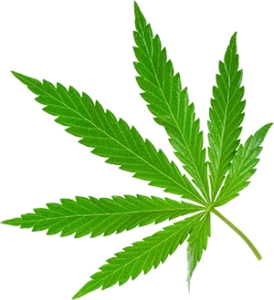Featured Products
-
AWAKEN AROUSAL OIL WITH CBD
$48.00
-
CBD GUMMY BEARS
$30.00
CBD PRODUCTS

$48.00
$30.00

Be Pain Free Global is a trusted natural medicine provider making a difference in people’s lives worldwide.
Our reviews and testimonies speak for themselves. We focus on providing the best medicine and customer care for our clients
Learn more about our support process, how you can contact us at BPFG, and how we are here to help you.
We have a 10-business day replacement policy, and we take all inquires very seriously. We are committed to quality products for you.
The Ultimate Cannabis And Health Education Platform Presented By Be Pain Free Global.
At BPFG, we work hard on collecting relevant videos for cannabis consumer education.
Just cannabis? No. We are all about consciousness, vision, proper nutrition, and holistic health.
We have compiled great resources to help understand the benefits of cannabis for your health.
Check out what’s smoking on our strains and terpenes list. Featuring best strains curated by our editor.
Indica's are known for their calming and sedating properties, usually leading to munchies, and sleep.
Sativa's are known for their ability to produce energetic feelings and creating a positive uplifting euphoria.
Hybrids are a very popular with cannabis consumers due to the initial uplift followed by relaxation.
Every case is different and requires individualized care. We have some great tips for doctor reccomendations.
Join our collective with a valid California medical recommendation to gain access today
Get the details on how our affiliate program works and how you can benefit by referring others
Become a Be Pain Free Affiliate and earn lifetime commissions for your referrals

The debilitating, well known disease diagnosed as Multiple Sclerosis (MS) is not contracted, nor inherited, but affects over 2.9 million people globally. Risk factors include gender, genetics, geography and ethnicity. “It affects women two to three times as often as men. Almost one million people in the United States have MS, making it one of the most common causes of neurological disability among young adults in North America.” Patients experiences this disease in various ways resulting in a variety of associated symptoms. The onset of MS typically occurs between the ages of 20-40 and is predominantly found in Caucasian women, however, it is a global disease and can stretch beyond the boundaries of typical factors. The actual cause of MS is a mystery and a combination of factors, including environmental, geographic, nicotine-laced cigarette smoking, obesity and lack of Vitamin D, or rays of sunshine are believed to be strong contributing factors to overall risk. Additionally, “Epstein-Bar Virus (EBV), the virus that causes mononucleosis (mono), has received significant attention in recent years. A growing number of research findings indicate that previous infection with EBV contributes to the risk of developing MS.”
Currently phytocannabinoids are being prescribed by physicians, such as Dr. Aaron Boster, who is not only a world-renowned neurologist specializing in MS, but also a leading expert in medical marijuana. He is one of many doctors who realize the relief factors that phytocannabinoids offer in treating multiple conditions including MS and therefore prescribes medical marijuana to his patients. Studies have found that these natural molecules may treat a wide range of the symptoms associated with MS. Cannabinoids flow through receptors in the ECS pathway and work to regulate a number of activities, including mood, memory, sleep, inflammation and appetite. Medical marijuana patients often report finding relief from their MS symptoms after consumption, like Pink P. who wrote a rave review of Kush Mints, “I have MS and I’ve been in search of the best pain relief flower…”
Multiple Sclerosis symptoms include:
Strains like Candyland, Sour Tsunami, Wedding Cake and Harlequin also offer a high concentration of non-psychoactive cannabinoids like CBD and CBG. Patients use a variety of methods to dose medical marijuana including edibles, tinctures and flower. On January 6, 2021, Shaun J. shared his experience with a tincture. He wrote, “Love it! Taste great, and the texture is also good. Great for pain relief, sleep issues, and anxiety. I would start with about half a dropper or less under the tongue. Also good for balancing The Endocannabinoid system (ECS), also taste great (in) coffee or tea. Very medicinal product.” If you’re looking to treat MS symptoms, certain types of CBD may be more helpful for certain symptoms, says Dr. Thrower. “I have found oral hemp-based CBD oils to be helpful for sleep and anxiety in MS. Topical CBD may help with joint pain and muscle tightness,” he says.
Although there is no known cure for MS, there are a vast array of pharmaceutical compounds, also known as “disease modifying therapies,” that are prescribed to reduce numerous relapse episodes, delay the progression of disability and limit new disease activity. These include:
Injectable medications
Avonex®
Betaseron®
Copaxone®
Extavia®
Glatiramer Acetate Injection
Glatopa®
Kesimpta®
Plegridy®
Rebif®
Oral medications
Aubagio®
Bafiertam™
Dimethyl Fumarate
Gilenya®
Mavenclad®
Mayzent®
Ponvory™
Tascenso ODT®
Tecfidera®
Vumerity®
Zeposia®
Infused medications
Briumvi™
Lemtrada®
Novantrone®
Ocrevus®
Tyruko®
Tysabri®
Medical marijuana is available by prescription with a medical marijuana card and comes in both botanical and synthetic forms. Botanicals are a variety of cannabis products that are derived from the cannabis plant. Cannabis can be taken via inhalation, orally/edible with tinctures and extracts. There are also topical creams and ointments available for sore muscles. These products vary in their concentration and proportions of cannabinoids and may be labeled with this information. Synthetic cannabinoids are compounds that are developed in a lab. Currently, the FDA has approved 2 synthetic cannabinoid products with specific rules for prescribing:
Be Pain Free Global Is A Recognized Leader In The Medical Cannabis Space. If you would like to learn more about Be Pain Free Global, how to get your medical recommendation, or how to join our collective, you can reach out to us via the chat button on our website, or call us at 1-888-420-3848.